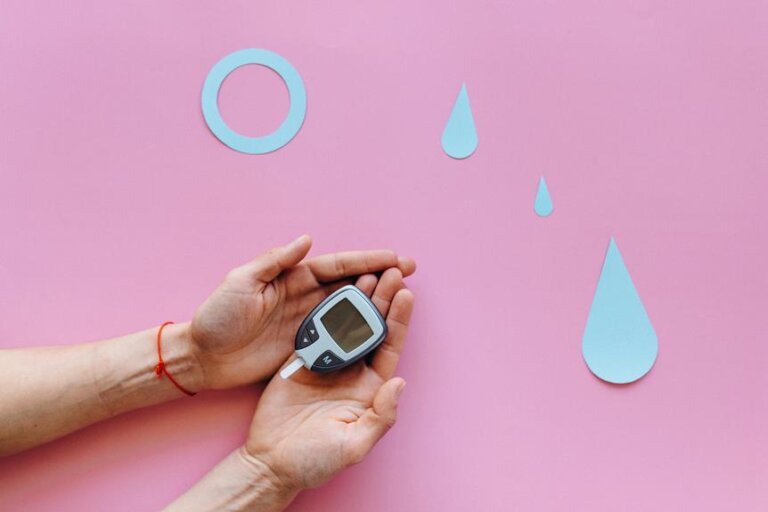diabetes and other health problems
Diabetes is a chronic condition that affects millions of people worldwide, with an estimated 463 million adults living with the disease as of 2019. It is characterized by high blood sugar levels due to the body’s inability to produce or effectively use insulin, the hormone that regulates blood sugar. While diabetes itself can be managed with proper medication and lifestyle changes, it also increases the risk of developing other health problems. These complications can range from heart disease and stroke to kidney disease and vision loss. In fact, diabetes is the leading cause of kidney failure, lower limb amputations, and adult-onset blindness. With such severe consequences, understanding the relationship between diabetes and other health problems is crucial for both patients and healthcare providers. In this article, we will delve deeper into the link between diabetes and various health issues, their impact on overall well-being, and ways to prevent or manage them effectively.
watch how he got cured of diabetes
Impact of diabetes on health: Understanding the link.
It is crucial to recognize the profound impact that diabetes can have on overall health and well-being. Diabetes is a complex chronic disease that affects the body’s ability to regulate blood sugar levels effectively. Over time, high blood sugar levels can lead to a range of complications that extend beyond just managing the disease itself. These complications can affect various organs and systems in the body, including the heart, blood vessels, eyes, kidneys, and nerves. Understanding the link between diabetes and these health problems is essential for healthcare professionals and individuals with diabetes alike, as it emphasizes the importance of proactive management and preventive measures to reduce the risk of complications and maintain optimal health.
for more articles on diabetes click here
Reducing the risk of complications.
When it comes to diabetes and other health problems, one of the primary goals of healthcare professionals is to reduce the risk of complications. This can be achieved through a comprehensive approach that involves regular monitoring of blood sugar levels, adhering to a healthy diet and exercise regimen, and closely following the prescribed medication or insulin regimen. Additionally, maintaining a healthy weight, managing stress levels, and avoiding smoking are all important factors in reducing the risk of complications. It is also crucial for individuals with diabetes to receive regular check-ups and screenings to detect any early signs of potential complications. By actively managing the disease and adopting a proactive approach, the risk of complications can be significantly minimized, leading to improved overall health outcomes for individuals with diabetes.
Managing diabetes and heart disease.
Individuals who have both diabetes and heart disease face unique challenges in managing their health. It is important for these individuals to work closely with their healthcare team to develop a personalized plan that addresses both conditions. This may involve implementing lifestyle changes such as adopting a heart-healthy diet, engaging in regular physical activity, and effectively managing blood sugar levels. Medications may also be prescribed to control blood pressure, cholesterol levels, and blood sugar. Regular monitoring of both diabetes and heart disease markers, such as A1C levels and blood pressure, is crucial in assessing the effectiveness of the treatment plan and making necessary adjustments. By actively managing both conditions, individuals can reduce the risk of complications and improve overall health outcomes.
The connection between diabetes and stroke.
Individuals with diabetes face an increased risk of developing stroke compared to those without the condition. The connection between diabetes and stroke lies in the impact that high blood sugar levels can have on blood vessels throughout the body, including those in the brain. Uncontrolled diabetes can lead to the formation of fatty deposits in the blood vessels, known as atherosclerosis, which can restrict blood flow and increase the likelihood of blood clots. These blood clots can then travel to the brain, resulting in a stroke. Additionally, diabetes can also contribute to other risk factors for stroke, such as high blood pressure and high cholesterol. Therefore, it is vital for individuals with diabetes to effectively manage their condition through lifestyle modifications, medication adherence, and regular monitoring to minimize the risk of stroke and maintain optimal overall health.
Navigating diabetes and kidney disease.
Individuals with diabetes who also suffer from kidney disease face unique challenges in managing their health. Diabetes is a leading cause of kidney disease, with high blood sugar levels placing strain on the kidneys over time. The kidneys play a crucial role in filtering waste products and excess fluids from the body, but when damaged by diabetes, their function may be compromised. This can lead to a buildup of toxins and fluid retention, resulting in further complications. Navigating the complexities of diabetes and kidney disease requires a multidisciplinary approach involving close monitoring of blood sugar levels, blood pressure, and kidney function. Lifestyle modifications, including a healthy diet low in sodium and protein, regular exercise, and adherence to prescribed medications, are essential in managing both conditions. Additionally, individuals with diabetes and kidney disease should work closely with their healthcare team to develop an individualized treatment plan that addresses the specific needs and challenges associated with these conditions. Awareness, education, and proactive management are key in navigating the complexities of diabetes and kidney disease, empowering individuals to maintain optimal health and quality of life.
Diabetes and nerve damage: Causes and prevention.
Diabetes is a chronic condition that can lead to nerve damage, known as diabetic neuropathy. The exact causes of nerve damage in diabetes are not fully understood, but it is believed to be a result of prolonged high blood sugar levels and related metabolic changes. Over time, these elevated blood sugar levels can damage the blood vessels that supply the nerves, disrupting their normal functioning. Prevention of diabetic nerve damage starts with effective management of diabetes through regular monitoring of blood sugar levels, adherence to prescribed medications, and lifestyle modifications such as a healthy diet and regular exercise. Maintaining tight control of blood sugar levels can help minimize the risk of nerve damage and its associated complications. Additionally, avoiding smoking and excessive alcohol consumption can also contribute to reducing the risk of diabetic neuropathy. Regular check-ups with healthcare professionals and early intervention are crucial in identifying and managing nerve damage in individuals with diabetes.
Balancing diabetes and mental health.
Managing diabetes can be a complex task that requires constant attention and self-care. However, it is important to recognize that diabetes is not just a physical condition—it can also have a significant impact on mental health. Balancing diabetes and maintaining good mental health is a crucial aspect of overall well-being. The constant monitoring of blood sugar levels, adhering to medication regimens, and making necessary lifestyle changes can be overwhelming and contribute to stress and anxiety. It is essential for individuals with diabetes to prioritize their mental health by seeking support from healthcare professionals, joining support groups, or engaging in stress-reducing activities such as mindfulness exercises or hobbies. Developing coping mechanisms, setting realistic goals, and maintaining a positive mindset are also important strategies for managing both diabetes and mental health effectively. By taking a holistic approach to health, individuals with diabetes can lead fulfilling lives while maintaining good mental and physical well-being.
The importance of regular screenings.
Regular screenings play a critical role in preventing and detecting potential health problems before they become more serious. The early detection of diseases and conditions allows for prompt intervention and treatment, significantly improving outcomes and quality of life. Regular screenings provide valuable information about an individual’s overall health, enabling healthcare professionals to identify any potential risks or abnormalities that may go unnoticed without proper monitoring. By participating in routine screenings, individuals can take proactive steps towards preventing or managing potential health issues, promoting well-being and longevity. It is essential to prioritize regular screenings as part of a comprehensive healthcare plan, ensuring early detection and timely intervention for optimal health outcomes.
In conclusion, it is crucial for individuals with diabetes to prioritize their health and seek proper medical care to manage their condition. While diabetes can increase the risk for other health problems, it is not a predetermined fate. By making lifestyle changes and working closely with healthcare professionals, individuals with diabetes can live healthy and fulfilling lives. It is never too late to take control of your health and make positive changes for a better future. Remember, diabetes is manageable and with proper care, you can prevent or delay the onset of other health problems. Stay informed, stay proactive, and prioritize your health.
FAQ
What are the potential complications of diabetes if left untreated or poorly managed?
If diabetes is left untreated or poorly managed, it can lead to serious complications such as heart disease, stroke, kidney damage, nerve damage, vision loss, and foot ulcers that may require amputation. Uncontrolled blood sugar levels can also increase the risk of infections and slow wound healing. Overall, untreated or poorly managed diabetes can significantly impact a person’s quality of life and increase the likelihood of developing life-threatening health issues. It is crucial for individuals with diabetes to properly manage their condition through medication, diet, exercise, and regular medical check-ups to prevent these complications.
How does diabetes impact other health conditions, such as heart disease or kidney disease?
Diabetes can significantly impact other health conditions, such as heart disease and kidney disease, by increasing the risk of developing these conditions. High blood sugar levels associated with diabetes can damage blood vessels, leading to cardiovascular issues like heart disease or stroke. Diabetes also puts strain on the kidneys, potentially leading to kidney disease or failure. Managing diabetes through medication, lifestyle changes, and regular monitoring is crucial in preventing complications and reducing the risk of developing other health conditions. Close monitoring and management of blood sugar levels can help in minimizing the impact on heart and kidney health.
Are there any lifestyle factors that can increase the risk of developing diabetes or exacerbate existing health problems?
Yes, lifestyle factors such as poor diet, lack of physical activity, excessive alcohol consumption, smoking, and stress can increase the risk of developing diabetes or exacerbate existing health problems. Making healthier choices in diet, exercising regularly, avoiding excessive alcohol and tobacco use, and managing stress levels can help reduce the risk of diabetes and improve overall health.
What are some common symptoms of diabetes and how can they be managed or treated?
Common symptoms of diabetes include frequent urination, excessive thirst, unexplained weight loss, fatigue, blurred vision, and slow healing of wounds. These symptoms can be managed through medication, proper diet, regular exercise, monitoring blood sugar levels, and maintaining a healthy lifestyle. Treatment may involve insulin therapy, oral medications, or other prescribed medications. It is important for individuals with diabetes to work closely with healthcare providers to create a personalized treatment plan to effectively manage the condition and prevent complications.
How can individuals with diabetes work to prevent or minimize the risk of developing other health problems associated with the condition?
Individuals with diabetes can prevent or minimize the risk of developing other health problems by maintaining healthy blood sugar levels through diet, exercise, medication adherence, regular monitoring, and seeking medical advice. It is also important to manage blood pressure and cholesterol levels, maintain a healthy weight, refrain from smoking, and attend regular check-ups to catch any potential issues early. Education, support from healthcare professionals, and lifestyle modifications are crucial in preventing complications and maintaining overall health for individuals with diabetes.




